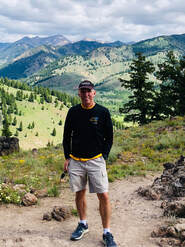Blessed Sacrament Chapel HoursSunday - Friday, 8:00 am - 9:00 pm
Saturday, 2:00 - 9:00 pm Office HoursMonday through Thursday 8:00 am – 7:00 pm
Friday 8:30 am - 4:30 pm Saturday 3:00 pm - 6:15 pm Sunday 8:00 am - 1:00 pm Vertical Divider
|
Telephone(805) 482 · 6417
(805) 987 · 8100 FAX For emergencies requiring
|
For eNews you can trust.
Staff Login
|
- Home
-
About
- Gallery
- Homilies >
-
Mass
>
- Mass in Very Slow Motion
- New Year Mass
- Epiphany
- Ash Wednesday
- Holy Week
- Ascension of the Lord
- First Communion Mass
- Pentecost
- Corpus Christi
- Blessing of Graduates
- Assumption of Mary
- College Blessing
- Catechetical Sunday
- Saints Day
- Mass of Remembrance
- Thanksgiving
- Immaculate Conception
- Our Lady of Guadalupe
- Simbang Gabi
- Christmas Mass
- Ministries >
- Pastor >
- Prayer
- Sacraments >
- Stations of the Cross
-
Encounter
-
Engage
- Calendar >
-
Groups
>
- Bereavement
- Bible Study >
- Cancer
- Caritas
- Chronic Pain
- Divorce
- Faith Sharing
- Filipino Ministry
- Knitting
- Landings
- Married Couples Ministry
- Men
- Military Family
- Meditative Movement
- Open Hearts
- PAX Christi
- Peer Leaders
- Prayer & Pruning
- Racial Justice
- Saints Among Us
- Scouts
- Single Adults
- Spanish
- Toastmasters
- Writers
- Women >
- Knights of Columbus
- Music Ministry >
- Outreach
- Retreats
- Liturgical Service >
- St. Vincent de Paul >
- Contact
- News
- Donate
- Home
-
About
- Gallery
- Homilies >
-
Mass
>
- Mass in Very Slow Motion
- New Year Mass
- Epiphany
- Ash Wednesday
- Holy Week
- Ascension of the Lord
- First Communion Mass
- Pentecost
- Corpus Christi
- Blessing of Graduates
- Assumption of Mary
- College Blessing
- Catechetical Sunday
- Saints Day
- Mass of Remembrance
- Thanksgiving
- Immaculate Conception
- Our Lady of Guadalupe
- Simbang Gabi
- Christmas Mass
- Ministries >
- Pastor >
- Prayer
- Sacraments >
- Stations of the Cross
-
Encounter
-
Engage
- Calendar >
-
Groups
>
- Bereavement
- Bible Study >
- Cancer
- Caritas
- Chronic Pain
- Divorce
- Faith Sharing
- Filipino Ministry
- Knitting
- Landings
- Married Couples Ministry
- Men
- Military Family
- Meditative Movement
- Open Hearts
- PAX Christi
- Peer Leaders
- Prayer & Pruning
- Racial Justice
- Saints Among Us
- Scouts
- Single Adults
- Spanish
- Toastmasters
- Writers
- Women >
- Knights of Columbus
- Music Ministry >
- Outreach
- Retreats
- Liturgical Service >
- St. Vincent de Paul >
- Contact
- News
- Donate
Search by typing & pressing enter


 RSS Feed
RSS Feed